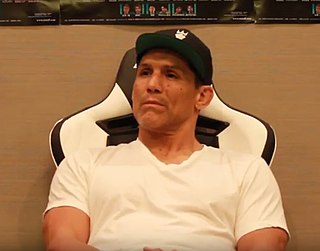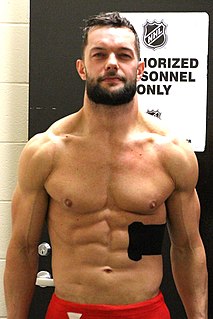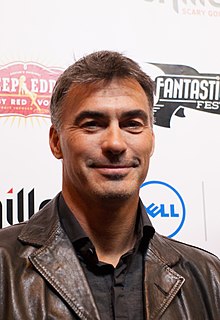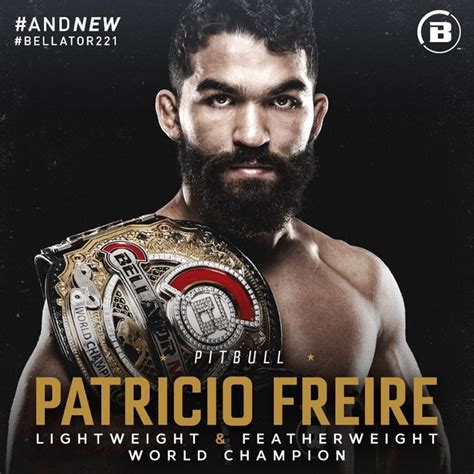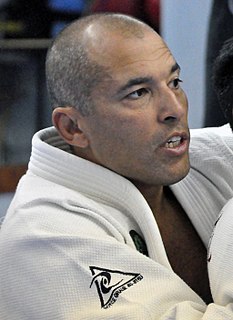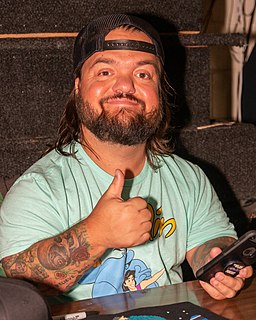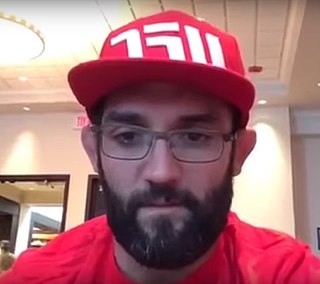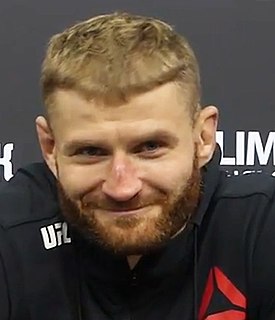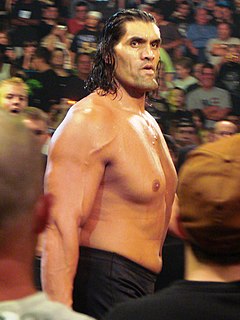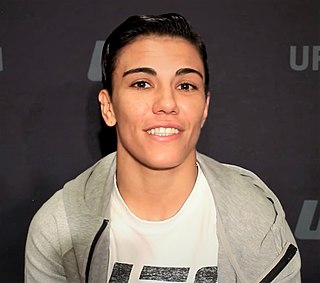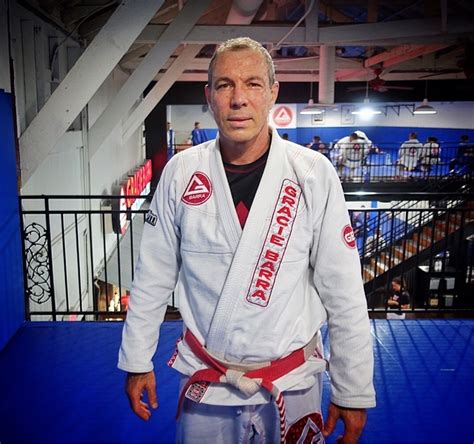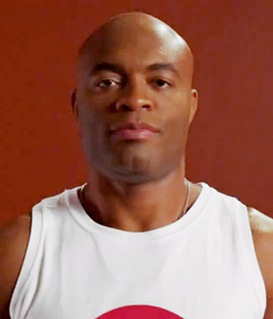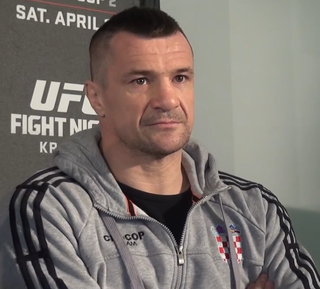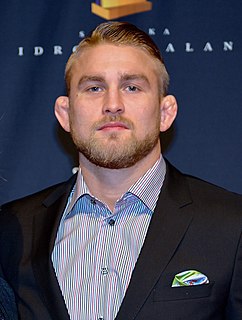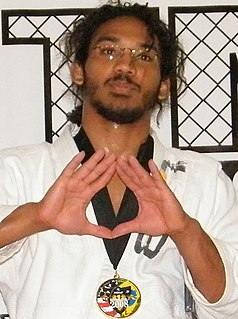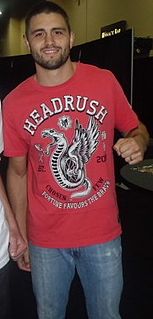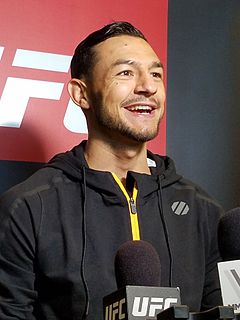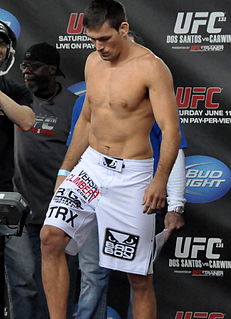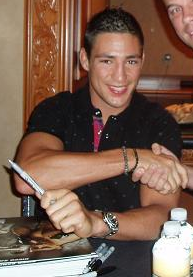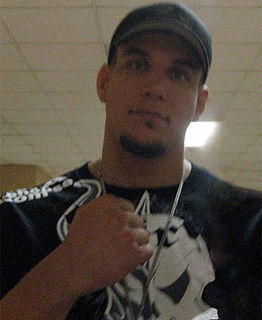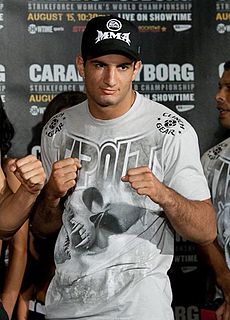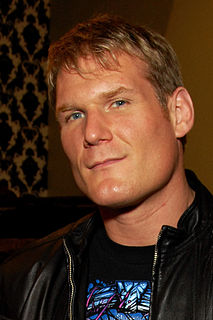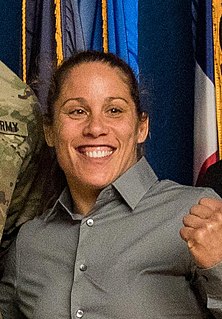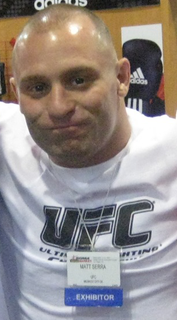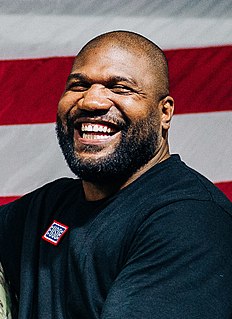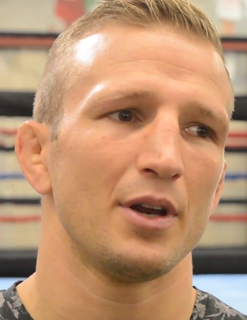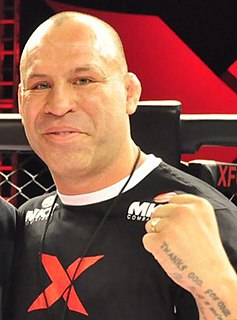A Quote by Frank Shamrock
My first coach was my brother Ken. He taught me submission wrestling, the catch-as-catch-can style that he was famous for. Then I trained in Japan with Funaki and Suzuki. Then I learned jiu-jitsu and sambo with Oleg Taktarov and Gokor Chivichyan.
Related Quotes
The best thing that could've happened to me was that I learned a lot in Vegas, but I didn't know how to implement it. Whenever I came to Texas, all we had was Marc Laimon, jiu-jitsu coach. We didn't have a striking coach. So me and him started to just develop our own game, because he knows nothing about striking. We sat down and we sort of found my style. I think that was the best thing that could've happened to me.
My father was a naturalist and a very spiritual person, who had a great desire to pass on his knowledge to others, so that they could receive the benefits of Jiu Jitsu as well. Growing up in this environment, I learned the art of Jiu Jitsu is actually a method through which one strives for self-perfection.
When I started out, Jiu-Jitsu was really an elite thing in Brazil, and there was some prejudice towards poorer kids, so I had to learn things on my own. Some of my neighbours started doing Jiu-Jitsu, so I started watching it, and then started rolling with them. It wasn’t organized training, but it was better than nothing.
